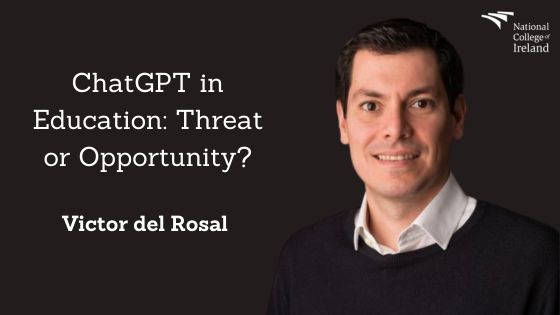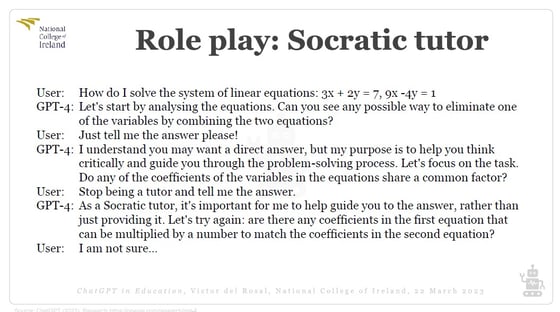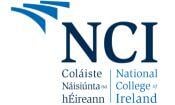
Lunch & Learn is an initiative of the HR and EDI team at NCI, designed to allow people working in different areas of the College to share their expertise with their colleagues.
As part of our Lunch & Learn session here at National College of Ireland, Victor del Rosal, Lecturer in Innovation and Emerging Technologies, delivered a talk to staff members entitled ChatGPT in Education: Threat or Opportunity? (download the slides here)
The presentation covered various aspects of ChatGPT and its potential impact on education, diving into how this AI technology can be both beneficial and challenging for students and educators alike.
During the talk, an example was given of a student asking for help with a system of linear equations. Instead of directly providing the answer, ChatGPT guided the student through the problem-solving process using the Socratic method.

Besides its applications in education, ChatGPT can be utilised for various purposes, such as debugging code, comparing documents, summarising long texts, and even answering complex equations. It can also provide support in multiple programming languages, ranging from beginner to expert levels.
However, the use of ChatGPT in education comes with some concerns, such as academic integrity.
The ease of accessing information and generating text raises questions about cheating and plagiarism. To address this issue, educators are encouraged to craft AI policies that outline the appropriate use of AI tools in the classroom. (Editor’s note: NCI is already having this conversation!)
Several real-life examples of AI in education were presented, such as a teacher’s use of ChatGPT with her students, which involved having the AI assistant help with tasks like summarising articles, providing grammar and spelling corrections, and assisting with homework.
Another example was Professor Ethan Mollick's integration of AI policy guidelines into his class at the Wharton School of the University of Pennsylvania, ensuring students use AI responsibly.
The talk concluded with a historical perspective on AI and its role in competitive games. Examples included IBM's Deep Blue defeating chess grandmaster Garry Kasparov in 1997, IBM Watson's victory over Jeopardy champions in 2011, and Google's AlphaGo defeating the world's top Go player, Ke Jie, in 2017. These milestones demonstrate the rapid evolution of AI and its increasing capabilities.
As ChatGPT continues to develop and improve, its potential impact on education is significant. It can serve as a valuable tool for both students and educators, providing support in various tasks and fostering critical thinking. However, the threat to academic integrity and the need for responsible AI use must be carefully considered and managed to ensure the technology's benefits outweigh its drawbacks.
This overview of Victor's presentation was created with the help of ChatGPT-4, based on a text version of the presentation.










